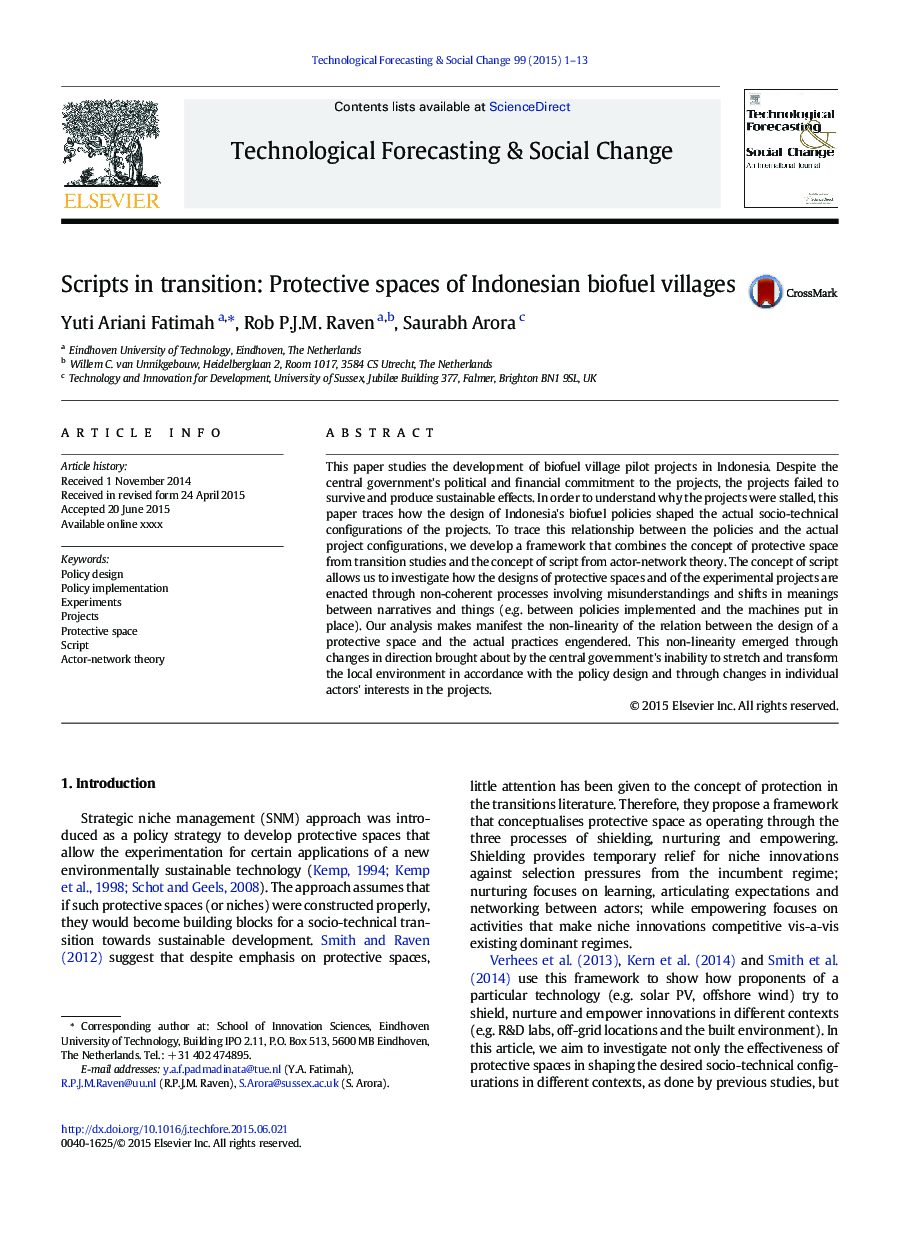| Article ID | Journal | Published Year | Pages | File Type |
|---|---|---|---|---|
| 7256428 | Technological Forecasting and Social Change | 2015 | 13 Pages |
Abstract
This paper studies the development of biofuel village pilot projects in Indonesia. Despite the central government's political and financial commitment to the projects, the projects failed to survive and produce sustainable effects. In order to understand why the projects were stalled, this paper traces how the design of Indonesia's biofuel policies shaped the actual socio-technical configurations of the projects. To trace this relationship between the policies and the actual project configurations, we develop a framework that combines the concept of protective space from transition studies and the concept of script from actor-network theory. The concept of script allows us to investigate how the designs of protective spaces and of the experimental projects are enacted through non-coherent processes involving misunderstandings and shifts in meanings between narratives and things (e.g. between policies implemented and the machines put in place). Our analysis makes manifest the non-linearity of the relation between the design of a protective space and the actual practices engendered. This non-linearity emerged through changes in direction brought about by the central government's inability to stretch and transform the local environment in accordance with the policy design and through changes in individual actors' interests in the projects.
Keywords
Related Topics
Social Sciences and Humanities
Business, Management and Accounting
Business and International Management
Authors
Yuti Ariani Fatimah, Rob P.J.M. Raven, Saurabh Arora,
